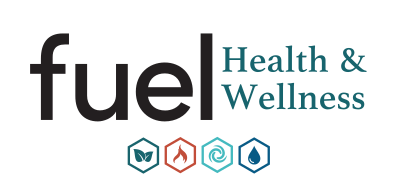Neck pain is a common challenge, affecting nearly 5% of people worldwide and often hindering daily activities and productivity. For those seeking natural, non-medicinal solutions, understanding whether physical therapy or acupuncture offers quicker, more enduring relief is key. This guide dives deep into the common causes and symptoms of neck pain, explores how physical therapy and acupuncture work, compares their approaches and results, discusses integrated care, helps you decide, and shows you how to begin your healing journey at Fuel Health and Wellness.
What Often Causes Neck Pain and Its Symptoms?
Neck pain, also known as cervicalgia, arises from discomfort in the cervical spine region. It’s typically triggered by mechanical stress, injury, or muscle imbalances, and the discomfort can spread to your shoulders and head. Prolonged screen time leading to poor posture, whiplash from sudden impacts, and ongoing emotional stress are frequent culprits that tighten muscles and irritate joints. Grasping these triggers lays the groundwork for selecting the most effective treatment.
What Factors Contribute to a Stiff Neck?
A stiff neck often stems from:
- Poor Posture – Slouching forward puts extra strain on your neck vertebrae and surrounding muscles.
- Whiplash Injury – A sudden, forceful back-and-forth motion of the head can strain ligaments and discs.
- Muscle Overuse – Repetitive actions or holding your head in one position for extended periods can cause tiny tears in muscles.
- Emotional Stress – Higher cortisol levels can lead to persistent muscle tightness in the neck and shoulders.
These factors frequently combine, intensifying neck discomfort and highlighting the need for specialized care.
What Are the Typical Signs of Neck Discomfort?
Cervicalgia commonly presents as:
- Localized Ache – A sharp or dull pain felt at the base of your skull or along your neck muscles.
- Radiating Sensations – Tingling or numbness that travels down your arms and into your hands, often due to nerve irritation.
- Headaches – Tension headaches originating from tight trapezius and suboccipital muscles.
- Limited Movement – Difficulty turning or tilting your head, impacting your ability to perform daily tasks.
Recognizing these symptom patterns helps practitioners tailor treatments, whether through hands-on therapy or needle stimulation.
How Does Neck Pain Impact Your Daily Life?
Persistent neck pain can make everyday activities challenging, from driving and working on a computer to finding a comfortable sleeping position. Restricted neck rotation makes it harder to safely check your surroundings while driving, and muscles that are constantly tense can lead to increased fatigue and mood disturbances. Regaining pain-free movement through effective treatment not only improves your physical capabilities but also lowers the risk of long-term issues.
How Does Physical Therapy Help with Neck Pain?
Physical therapy uses movement science to restore neck stability, ease pain, and enhance functional movement. Each session typically blends hands-on techniques, targeted exercises, and patient education. Our physical therapy services are designed to meet your individual needs.
What Are the Main Physical Therapy Techniques for Neck Pain?
Physical therapy for neck discomfort usually includes:
- Manual Therapy – Gentle joint mobilizations or manipulations to realign spinal segments and release muscle tightness.
- Therapeutic Exercises – Specific exercises to strengthen deep neck flexors and shoulder blade stabilizers, promoting better support.
- Postural Retraining – Guidance on ergonomics and exercises to correct forward-head posture.
- Modalities – Using heat, ice, or electrical stimulation to reduce inflammation and aid tissue repair.
These methods address both immediate symptom relief and underlying mechanical issues.
What Are the Advantages of Physical Therapy for Neck Pain?
Individuals who complete a structured physical therapy program often experience:
- Significant Pain Relief – Manual techniques and exercise-induced endorphins help reduce discomfort.
- Improved Mobility – Joint mobilization and muscle flexibility restore full neck movement.
- Increased Strength and Stability – Balanced muscle function helps prevent future strains and spasms.
- Empowered Self-Care – Home exercise plans help patients maintain their progress independently.
These results can decrease reliance on pain medication and reduce long-term limitations.
Effectiveness of Exercise Interventions for Preventing Neck Pain: A Systematic Review With Meta-analysis of Randomized Controlled Trials
A 2023 review and meta-analysis of five randomized controlled trials indicated moderate evidence that exercise programs—including strength, endurance, stretching, and motor control exercises—likely lower the risk of new neck pain episodes in the short term.
This finding supports the discussion on physical therapy’s benefits, particularly how therapeutic exercises build strength, stability, and help prevent neck pain from returning.
What Can You Expect During a Physical Therapy Session?
A typical visit at Fuel Health and Wellness involves:
- Initial Evaluation – Assessing your posture, neck mobility, and muscle control.
- Hands-On Treatment – Mobilizing stiff areas and releasing tension in tight muscles.
- Exercise Guidance – Demonstrating and guiding you through personalized strengthening and stretching exercises.
- Progress Monitoring – Using objective measures like range-of-motion tests and pain scales to guide your treatment plan.
Sessions usually last 45–60 minutes, with a gradual transition towards independent home exercises.
Which Physical Therapy Exercises Are Best for Neck Stiffness?
| Exercise | Purpose | Evidence Level |
|---|---|---|
| Chin Tucks | Helps retrain deep neck flexors for better posture | Strongly supported in musculoskeletal research |
| Scapular Squeezes | Strengthens mid-trapezius muscles to reduce strain on neck extensors | Shown to decrease neck pain episodes |
| Levator Scapulae Stretch | Relieves tension in the muscles on the side of the neck | Effective for improving side-bending movement |
| Upper Trap Release | Soft-tissue technique using contract-relax to release trigger points | Provides immediate relief for trigger-point pain |
How Does Acupuncture Help Relieve Neck Pain?
Acupuncture, a practice from Traditional Chinese Medicine, eases neck discomfort by inserting fine needles into specific points to restore the flow of vital energy (Qi), encourage the release of natural pain relievers, and influence the nervous system.
What Are the Principles Behind Acupuncture for Neck Pain?
Acupuncture’s effectiveness is based on:
- Qi Regulation – Needles placed along energy pathways help normalize disrupted flow associated with neck tension.
- Endorphin Stimulation – The physical stimulation prompts the body to release its own natural painkillers.
- Neurophysiological Modulation – Activating specific nerve fibers helps block pain signals from reaching the brain.
These combined actions promote both immediate pain relief and longer-term improvements in local circulation and muscle tone.
Which Acupuncture Points Are Commonly Used for Neck Stiffness?
| Point | Location | Indication |
|---|---|---|
| GB20 (Fengchi) | In the hollow below the base of the skull, on either side of the neck muscles | Helps clear external influences and relieve neck tension |
| LI4 (Hegu) | In the fleshy web between the thumb and index finger | Regulates energy flow and eases muscle spasms |
| SI3 (Houxi) | On the side of the hand, just below the little finger knuckle | Benefits the neck and upper back |
| BL10 (Tianzhu) | Just below the base of the skull, lateral to the spine | Improves local circulation and reduces pain |
What Benefits Can Acupuncture Offer for Chronic Neck Discomfort?
Acupuncture sessions often result in:
- Lasting Pain Relief – Sustained modulation of natural pain relievers can lower chronic pain levels.
- Muscle Relaxation – Restoring balanced energy flow eases tightness in neck muscles.
- Stress Reduction – A calming effect on the nervous system helps decrease stress hormones that worsen muscle tension.
- Improved Sleep – Reduced pain during the night leads to more restorative rest.
Patients frequently report a general sense of improved well-being alongside relief from neck issues.
Durable Effect of Acupuncture for Chronic Neck Pain: A Systematic Review and Meta-Analysis
A 2024 review and meta-analysis of eighteen randomized controlled trials concluded that acupuncture, when used alongside other treatments, can provide lasting pain relief for chronic neck pain at three and six months after treatment. The review also noted significant improvements in functional abilities.
This research supports the claims that acupuncture can offer enduring pain relief, aid muscle relaxation, and enhance overall well-being for those with chronic neck discomfort.
What Can Patients Expect During an Acupuncture Session?
During an initial acupuncture visit at Fuel Health and Wellness:
- Consultation and Assessment – A review of your health history, pulse, and tongue to understand your condition.
- Needle Insertion – Thin, sterile needles are placed at specific points and left in for 15–30 minutes.
- Sensation Monitoring – You might feel a mild tingling or warmth, known as the “deqi” sensation, indicating the treatment is working.
- Post-Treatment Advice – Recommendations for rest, hydration, and gentle movements.
Sessions typically last about 45 minutes, and most individuals benefit from 6–8 treatments for optimal results.
What Are the Main Differences Between Physical Therapy and Acupuncture for Neck Pain?
While both aim to reduce neck pain and improve function, physical therapy and acupuncture differ in their underlying philosophies, how they work, and how they are administered.
How Do Their Philosophies and Mechanisms Differ?
Physical therapy focuses on biomechanical correction—adjusting joints and strengthening muscles—to address the physical causes of pain. Acupuncture, on the other hand, uses an energy-based approach, stimulating specific points to rebalance Qi and influence the body’s natural healing pathways. This means physical therapy often involves active patient participation, while acupuncture typically provides passive stimulation to support the body’s innate healing systems.
What Does Research Indicate About Their Effectiveness for Neck Pain?
Clinical studies show that both physical therapy and acupuncture are significantly more effective than no treatment for reducing chronic neck pain and improving function. Meta-analyses suggest that exercise-based therapies can reduce pain by 30–50%, while acupuncture can achieve similar pain reduction with fewer reported side effects.
Acupuncture is as Effective as Exercise for Improvement of Chronic Neck Pain: A Randomized Clinical Trial
A 2020 randomized clinical trial comparing acupuncture and exercise therapy for chronic neck pain found no significant difference in pain reduction or functional improvement between the two groups after 6 and 12 weeks. Both interventions led to notable improvements.
This study directly compares acupuncture and exercise-based physical therapy, supporting the idea that both approaches can offer comparable benefits for individuals dealing with chronic neck pain.
Who Benefits Most from Each Treatment?
Ideal candidates for each therapy include:
- Physical Therapy – Individuals with posture issues, muscle imbalances, or mechanical neck pain who would benefit from active correction.
- Acupuncture – Those experiencing chronic tension, stress-related muscle tightness, or individuals seeking a non-invasive, whole-body approach to pain relief.
Your personal preferences and past experiences with treatment can help guide your choice.
How Do Treatment Duration and Invasiveness Compare?
| Modality | Typical Course | Invasiveness |
|---|---|---|
| Physical Therapy | 6–12 weekly sessions | Involves hands-on techniques for joints and muscles |
| Acupuncture | 6–8 sessions over 4–6 weeks | Involves inserting fine needles without tissue removal |
What Are the Cost and Insurance Considerations for Both Therapies?
Costs can vary based on location and insurance coverage:
- Physical Therapy – Often covered under insurance for musculoskeletal or injury-related conditions; co-pays typically apply per session.
- Acupuncture – Increasingly covered by insurance, sometimes under alternative care benefits or preventive services.
It’s always best to confirm your benefits with your insurance provider and the clinic to understand your out-of-pocket costs.
Can Combining Physical Therapy and Acupuncture Enhance Neck Pain Relief?
Combining therapies can create synergistic effects—merging mechanical adjustments with neurochemical balancing—to offer a comprehensive and personalized recovery plan.
What Are the Advantages of an Integrated Treatment Plan?
An integrated approach can lead to:
- Faster Pain Reduction – Manual therapy improves tissue mobility while acupuncture stimulates pain-relieving pathways.
- Balanced Muscle and Nervous System Function – Strengthening postural muscles complements the balancing effects of acupuncture.
- Reduced Risk of Recurrence – Addressing both physical and energetic factors helps prevent flare-ups.
- Overall Well-being – Patients often experience improved mood, sleep, and resilience to stress alongside physical improvements.
By addressing multiple aspects of neck pain, combined care can lead to better overall results.
How Does Fuel Health and Wellness Integrate These Therapies?
At Fuel Health and Wellness, integrated neck pain care starts with a collaborative assessment by our physical therapists and licensed acupuncturists. Based on your unique needs, our practitioners will create a phased plan, alternating physical therapy sessions with acupuncture treatments to enhance the effects of each modality and promote optimal healing. This coordinated approach ensures a smooth progression from restoring physical alignment to balancing your body’s energy.
When Should You Consider Combining These Therapies?
Individuals might benefit from combined treatments when:
- Progress Stalls with One Therapy – Pain relief plateaus after several sessions of a single treatment.
- Chronic Pain and Stress Intertwine – Persistent muscle tension linked to stress requires both physical and energetic support.
- Complex Neck Issues – Conditions like post-surgical stiffness or multifaceted neck pain benefit from a multi-pronged strategy.
We encourage you to discuss integrated options during your initial consultation to tailor a plan that’s right for you.
Beyond acupuncture and physical therapy, Fuel Health and Wellness also offers complementary red light therapy, which aids in cellular repair and pain management. Learn more about how different modalities can work together in our guide on red light vs. infrared therapy.
How Can You Choose Between Physical Therapy and Acupuncture for Neck Pain?
Selecting the best treatment involves considering your pain’s characteristics, your personal preferences, and your health goals to find the approach most likely to provide meaningful relief.
What Factors Should Guide Your Treatment Choice?
Key considerations include:
- Origin of Pain – Is it primarily from physical misalignment or stress-related tension?
- Your Preferred Role – Do you prefer active participation in exercises or passive treatment like needle stimulation?
- Time Commitment – Consider the frequency of weekly exercise sessions versus bi-weekly acupuncture appointments.
- Comfort Level – How do you feel about needle insertion and hands-on physical manipulation?
- Insurance Coverage – Understand the out-of-pocket costs and what your plan covers.
Weighing these factors can help ensure you choose a treatment you’ll stick with and feel satisfied with.
When Is It Important to See a Specialist for Neck Pain?
Seek specialist advice if you experience:
- Warning Signs – Sudden severe pain, loss of sensation or strength, or symptoms following a significant injury.
- Persistent Pain – Neck pain that lasts longer than six weeks despite initial conservative treatments.
- Worsening Symptoms – Increasing weakness or numbness that could indicate nerve compression requiring further investigation.
Early consultation with a specialist can prevent conditions from worsening and lead to more effective treatment.
How Can You Prepare for Your First Treatment Session?
Before your appointment, it’s helpful to have:
- Your Medical History – Including past injuries, surgeries, and current medications.
- A Symptom Log – Note when your pain started, its intensity, and what makes it better or worse.
- A List of Questions – Prepare questions about your goals, expected outcomes, and the treatment process.
Coming prepared helps maximize the efficiency and personalization of your care plan.
How to Book Your Consultation at Fuel Health and Wellness?
Scheduling your first appointment is straightforward. Visit our Contact Us page to request an appointment, give our friendly team a call, or send us an online inquiry. Our staff will assist with insurance verification and help you find a convenient time for a collaborative assessment.
What Are Common Patient Questions About Neck Pain Treatments?
Patients often want to know which therapy offers the quickest relief, how many sessions are typically needed, potential risks, and when they can expect to see improvements. Addressing these questions openly helps set realistic expectations and builds confidence in the healing process.
Neck pain can arise from physical misalignment, overuse, or stress, and both physical therapy and acupuncture provide effective, evidence-based relief through distinct yet complementary methods. Whether you choose one approach or combine them, a personalized plan based on thorough assessment, collaborative care, and consistent effort leads to the best results. At Fuel Health and Wellness, our skilled practitioners combine the latest manual techniques, targeted exercises, and expert acupuncture to guide you toward lasting neck health—schedule your consultation today and begin your journey to pain-free movement.


